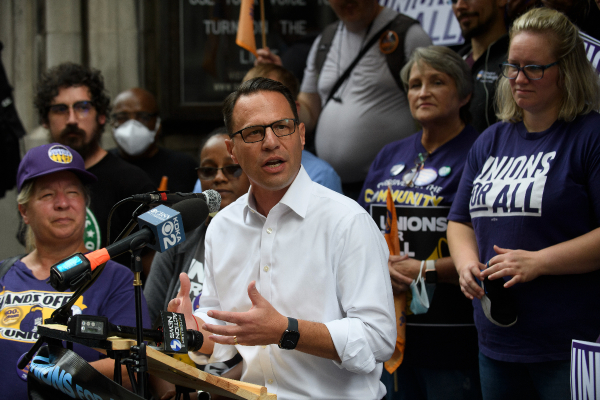Debt, Default, and Worldview
The clock is ticking. The United States is on the verge of default. Congress and the president seem unable to come together and find an agreement avoiding an economic catastrophe.
How in the world did we get into this fix? Well, it didn’t happen overnight. It’s been coming for a generation. For years, fiscal conservatives have warned about the dangers of out-of-control borrowing and spending, but current and previous presidents and congresses have ignored them, rolling up a massive national debt.
The bigger question is why did the American people stand for this? The answer is painfully clear. Because the people themselves were busy borrowing and spending like fiends.
Americans as a rule used to be a frugal people. They believed in the Protestant work ethic - an honest day’s work for an honest day’s pay, save for a rainy day, don’t go deep into debt. But something changed, and New York Times columnist Thomas Friedman - whom I respect though often disagree with - hit the nail on the head.
“The generation that came of age in the last 50 years,” he writes, “will be remembered most for the incredible bounty and freedom it received from its parents and the incredible debt burden and constraints it left on its kids.” Friedman calls this the “clash of generations.” The greatest generation scrimped and saved; their kids, the boomers, went on a big shopping binge.
This is what happens when a false worldview comes home to roost. Remember that it was in the 1960s that existentialism and relativism took over college campuses. If there truly were no God and life were devoid of meaning, well, live it up while you can. Throw off the burden of moral restraints, of civic duty and responsibility. Find fulfillment in pleasure and self-actualization; not in service to others or in building a good and just society. Thus was ushered in what Christopher Lasch called the age of narcissism.
There’s only one problem with the existentialist/relativistic worldview and the self-centeredness it breeds: It doesn’t work. It doesn’t foster the self-discipline, prudence, and moral character that individuals and societies need in order to flourish.
No wonder then, according to the Department of Commerce, when adjusting for inflation Americans spent more than they earned in most months from 2000 through 2008. Even without adjusting for inflation, monthly personal saving was usually less than three percent. This means people were borrowing more than they could repay.
Jesus asked the right question. Who would set out to build a tower who did not “first sit down and estimate the cost” (Luke 14:28). Actually, we’re worse off than that. We borrowed heavily to build the tower, only to find out now it is about to be repossessed!
Not all the news is bad, though. Since 2008, Americans have awakened to reality and begun to spend less and save more. We’ve put off that vacation, coaxed a few thousand more miles out of the old car. We’ve tightened our belts. Now it’s time to make sure the government does the same.
Are folks beginning to figure out that we’ve been building a tower on a false worldview? That chasing self-fulfillment and living for the moment lead inevitably to moral and economic poverty? Well, we’ll see.
But it’s a fair question, and we, the Church, must raise it again and again. For our good and for the good of all.






















